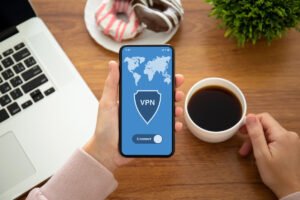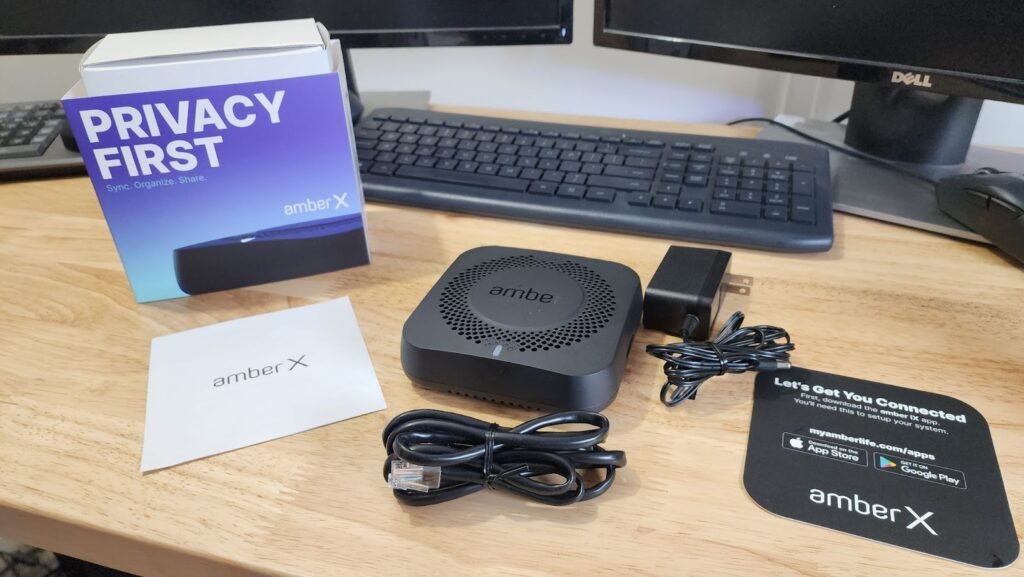Do you really need to know what is happening with your home network? Are you really at risk for not monitoring it? You’d be surprised by what dangers are lurking out there. It always amazes me when I come across a family relative, friend, or acquaintance that is completely aloof to how the internet operates in their home. Numerous times, I’ve encountered a home where the WiFi connection isn’t secure with a password and it baffles me, even causes me a little anxiety. I’d argue that it’s the responsibility of the internet provider to at least create a password to make someone’s network secure, but I digress. We created a list of questions every parent (actually every homeowner) should know as it relates to their home network. Don’t worry, we’re not going to throw out some technobabble jargon to confuse you. We don’t care about sounding smart. We care about helping you. We’ll keep this as dumb simple as possible, so you can have some actionable things to do after reading this.
What Is A Home Network?
Before we get into the questions you need to have a handle on, let’s just start with the basics here because if you aren’t monitoring your home network, you might not even know what it is. This is really easy. A home network is a group of devices that connect to the internet in your home. Those groups of devices could be laptops, computers, iPods, tablets, Amazon Echos, gaming systems, printers, smartphones, smartwatches…anything that connects to your internet. So when we say “Home network”, this is what we’re referring to. It’s everything. Simple, right?
Three Important Questions Every Parent (Home Owner) Should Be Asking
There are more than three important questions you should have a grasp on when it comes to monitoring your home network, but we wanted to focus on the three most important and easy-to-solve questions. I’d even add to this that you should know the answers to these questions or at least know how to access those answers fairly quickly. We’re going to carefully go through each of these questions and dive into why you should know each one and why each one is important.
Do You Know What Devices Are Connected To Your Home Network?
If your first gut reaction is, “I have no clue and I have no clue how to find out.” Then keep reading! Don’t want to freak you out, but how sure are you that your neighbor isn’t streaming off your internet connection? Knowing what devices are connected is definitely one of the most important things to know and understand. Your home internet is important because it provides the connection for all of your devices in your home to the outside world of the web. If you have devices that are not connected to your home network, such as a laptop that you take with you on trips, then those devices are vulnerable to anyone who might be using the same public networks as you. And when those devices connect to your home network, there are security risks. That’s just one example among many.
By knowing what devices are connected to your home network, you can better protect yourself by setting up firewalls and other security measures on your home network. You can also set parental controls on specific devices that are connected to your network, which can help protect your children from inappropriate content online.
Discover: What Is Home Automation
Do You Know Which Websites & Apps Are Being Accessed By Your Home Network?
You might think this question is the same as the first, but they are very different. Knowing what those devices connected to your network are accessing is another very important thing for you to know. For starters, you should want to know the type of content and media the devices connected to your home network are accessing. No judgments here, but it’s downright scary what people look at and consume on the internet. In some cases, you might be held liable for what someone on your home network is accessing. So you should care. The Communications Decency Act gives you a little protection, but you don’t want to deal with investigations and discovery and all that legal stuff. Better safe than sorry. We don’t mean to strike fear into you either, it is a reality.
But that’s just one part of the equation. Apps and websites can access your personal information. I literally had a friend track my smartphone through a link he shared with me. It was creepy. But it taught me a really important lesson. Websites can make a record of your computer’s ID and your IP (Internet Protocol) address and track your web-behavior. With a decent firewall or VPN (DDID choice is ExpressVPN), you can completely halt this. And knowing which apps and websites are being accessed by your home network is vital. Because if you’re not careful, someone could be accessing your personal information without your knowledge. But I like to know what apps my family is using. Tik Tok, Instagram, Facebook, Snapchat, Fortnite…I like to know when those are being accessed, how often, and how much.
Do You Know What Devices Connected Your Home Network Are Accessing?
It’s the 2020s, man. Kids share passwords. They shouldn’t, but they do. One of my favorite things to do is get a notification when a new device accesses my network only to shut it down moments later. Usually, it’s my son’s friend accessing our home network, but I still like to chat with them before I give them access so I can let them know that I can see EVERYTHING they’re doing on their phone. Want to avoid any awkward future conversation with their parents (if you know what I mean).
Why else is it crucial to know which devices are connected? Because your devices talk to each other. But it’s also important to know what devices are connected to your home network because each device uses up bandwidth and slows down the network for everyone else. A lot of smartphones won’t update apps or operating systems unless connected to WiFi. Many times once a guest in my house gets access to my network, their phones start downloading those apps and using a ton of my data. With a decent router, you can throttle specific devices and even shut them down if you wanted to. Additionally, some devices might be hacked and used to steal your personal information or launch cyberattacks against other people. By knowing what devices are connected to your home network, you can take steps to secure them and protect your privacy. You can also disable or unplug any devices that you don’t use anymore.
What Do I Recommend To Monitor A Home Network?
So…what are you supposed to do? Hopefully, by now, you understand the importance of knowing why monitoring your home network is important. Time to take action! There are so many options out there to help monitor your home network. There are some complex options and some really simple, yet effective solutions. I really like Google’s Nest Wifi. Not only can it act as a home automation hub where you can control all the smart devices in your home (outlets, lights, cameras, locks, thermostat, plant lights, etc), but it can also help you monitor your home network. If you want, you can set up a guest network on your home network as well. Setup is really easy and the Google community and support are just phenomenal. Plus, operating the app and navigating through features is a huge thing for me. Google’s Wifi section of Google Home (where these features exist) are just fantastic. If you’re a little more geeky, you can also look at the Synology RT2600ac which has similar features, plus some really cool parental controls and notifies you as bad-guys attack you from the outside. I’ll have to do a review of that bad-boy.








